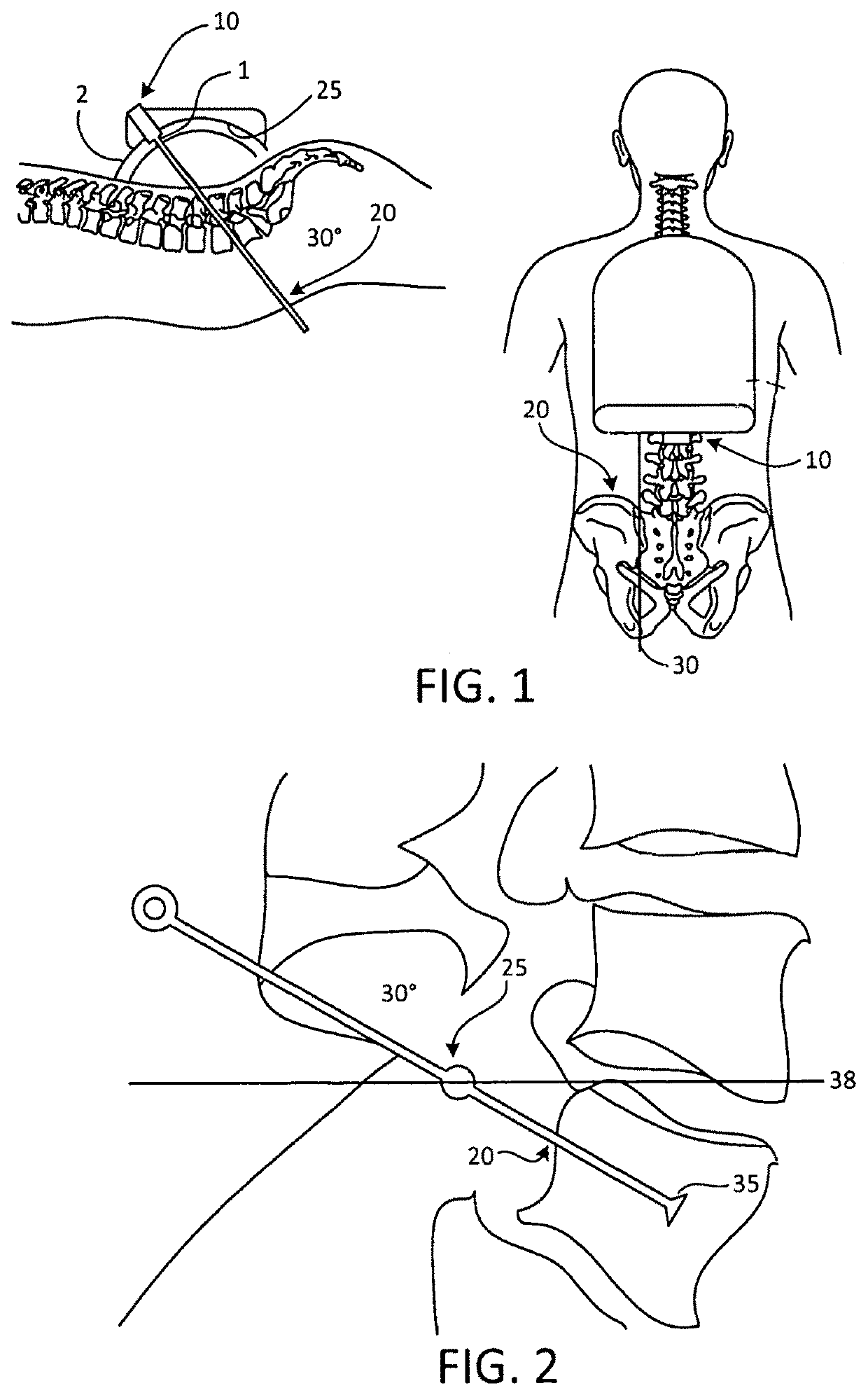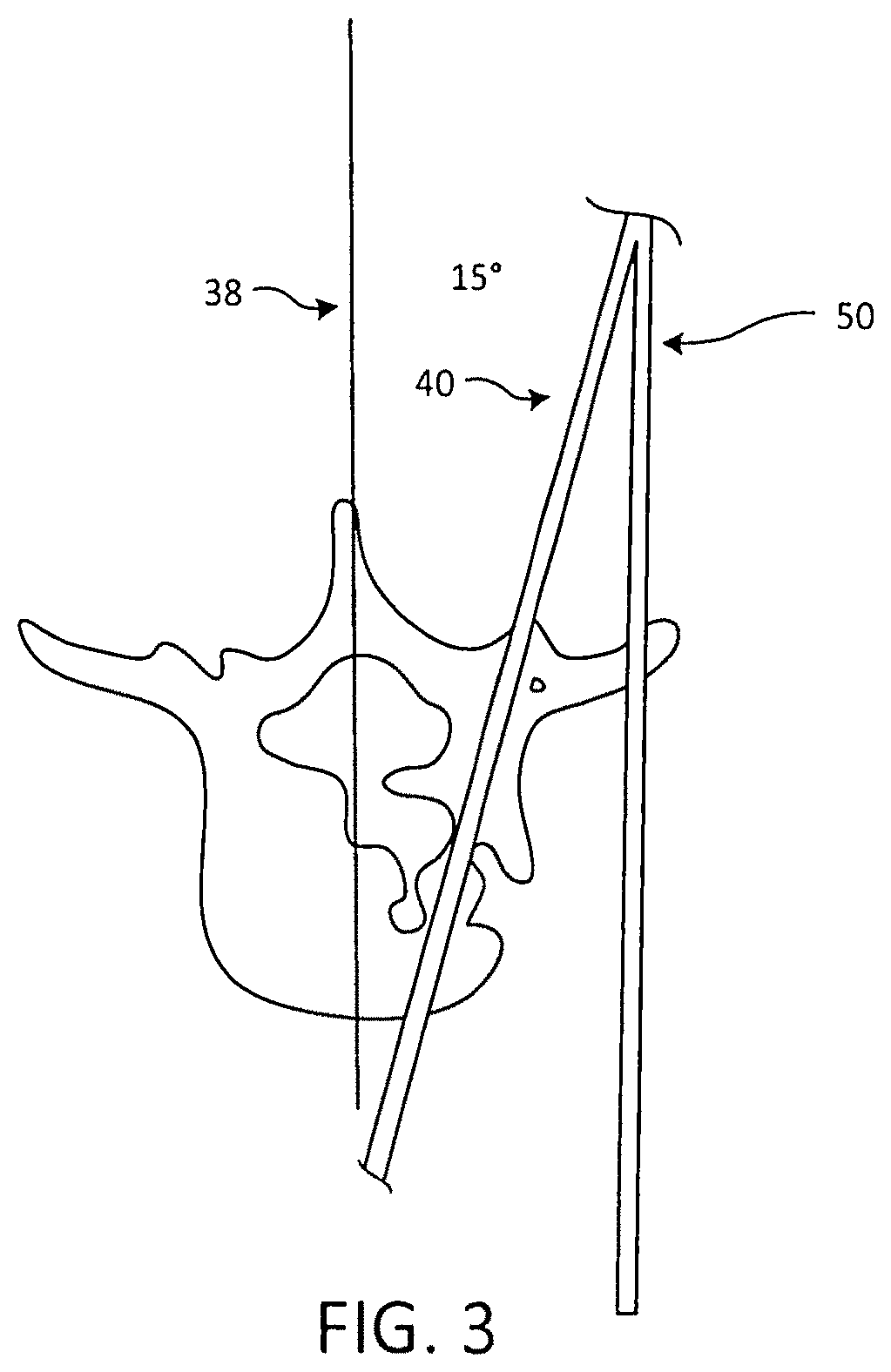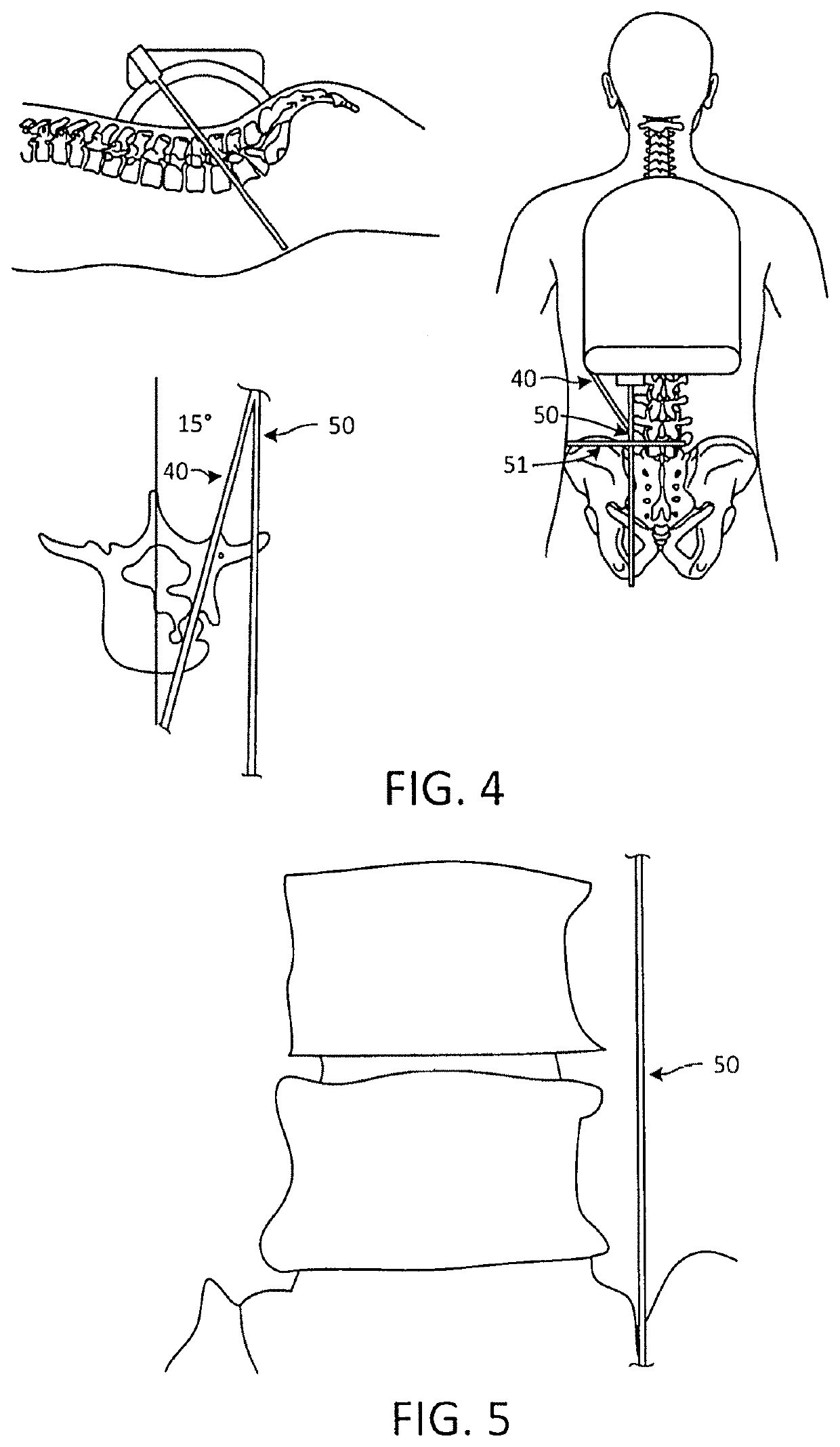Surgical targeting systems and methods
a technology of surgical targeting and target image, applied in the field of surgical targeting system and method, can solve the problems of not accurately placing the image in global 3-dimensional space, not providing an accurate location with respect to anatomical landmarks, and the degree of precision desired is still not met using the current methods
- Summary
- Abstract
- Description
- Claims
- Application Information
AI Technical Summary
Benefits of technology
Problems solved by technology
Method used
Image
Examples
Embodiment Construction
[0047]First, the light source 1 in FIG. 1A must be positioned. A collar system 2 will fit the image intensifier 10 incorporating the light source 1 and the radiopaque marker 25. As shown in FIG. 1A and FIG. 1B, using the radiopaque marker 25 on the face of the laterally positioned image intensifier 10 fluoroscopically the light source trajectory 20 is determined through the spine segment. By superimposing the marker over the anatomy, the system automatically places the laser marker over the skin as shown at 30. This determines both the angle and latitude position on the skin to start the procedure.
[0048]Next, the A / P position must be determined by looking at the preoperative axial view of the target in question. In FIG. 2, the target in question is a vertebral body 35. The midline 38 is determined, an azimuth through the pedicle or structures desired is positioned, and an angle is determined that would effectively produce the correct trajectory 40 through the anatomy. For example, F...
PUM
 Login to View More
Login to View More Abstract
Description
Claims
Application Information
 Login to View More
Login to View More - R&D
- Intellectual Property
- Life Sciences
- Materials
- Tech Scout
- Unparalleled Data Quality
- Higher Quality Content
- 60% Fewer Hallucinations
Browse by: Latest US Patents, China's latest patents, Technical Efficacy Thesaurus, Application Domain, Technology Topic, Popular Technical Reports.
© 2025 PatSnap. All rights reserved.Legal|Privacy policy|Modern Slavery Act Transparency Statement|Sitemap|About US| Contact US: help@patsnap.com



